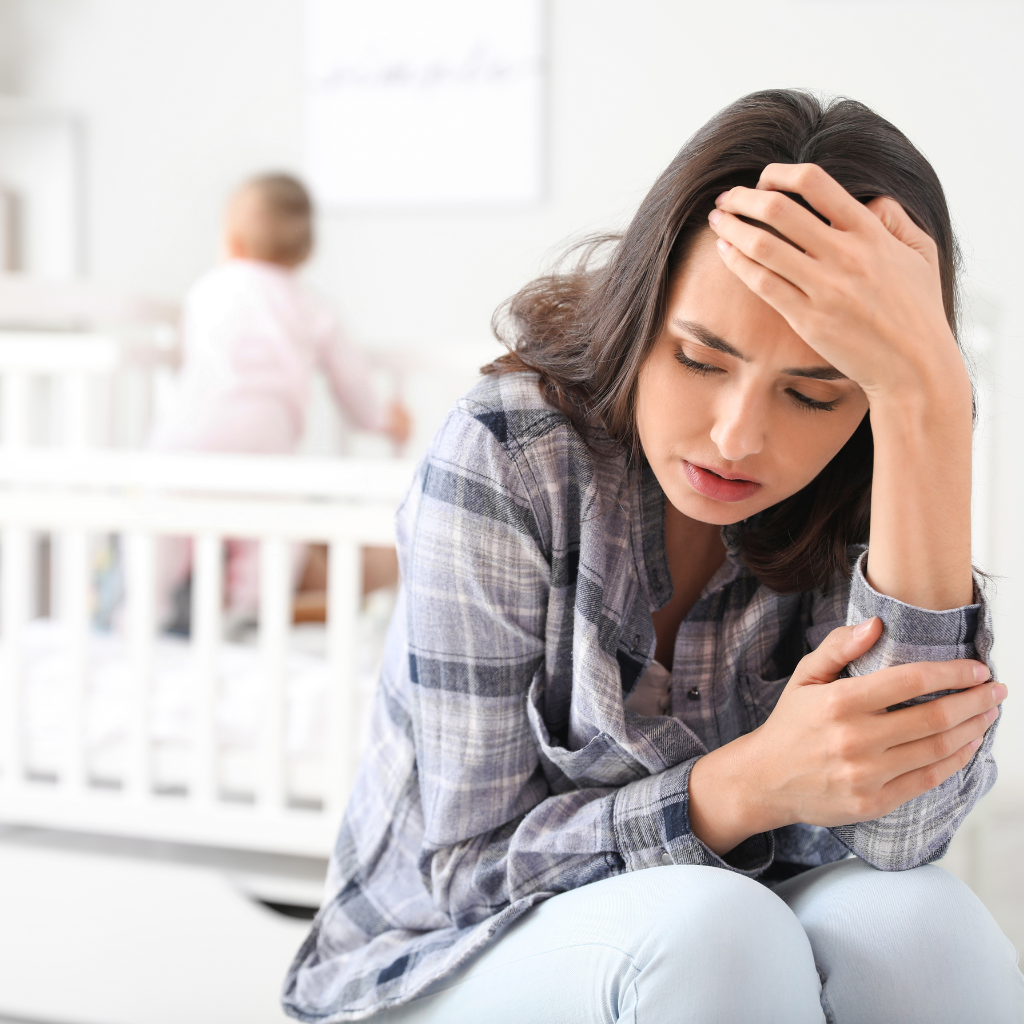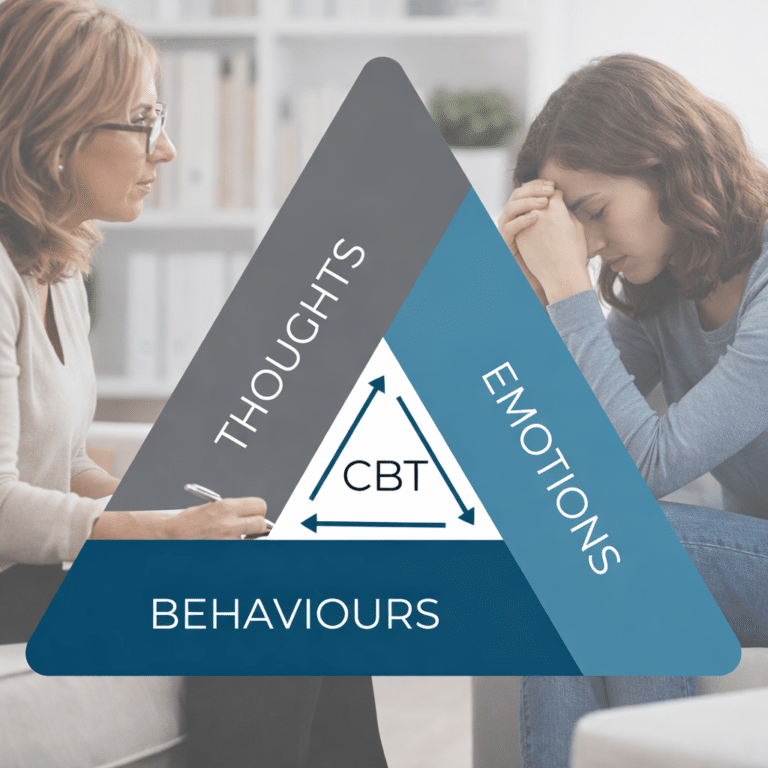The Impact of Hormonal Changes on Women’s Mental Health

Stefanie Solomon

Hormonal shifts are a natural part of life for women, but the emotional effects they bring can be confusing, overwhelming, and sometimes deeply distressing. Understanding the connection between hormone levels and mental health isn’t just helpful—it’s essential for navigating each life stage with clarity and compassion.
Whether it’s during the menstrual cycle, pregnancy, postpartum, or menopause, changes in hormones like estrogen and progesterone can influence mood, energy, sleep, and emotional resilience. These aren’t just “mood swings” or “bad days”—they’re biologically rooted shifts that deserve thoughtful attention.
How Hormonal Changes Affect Mental Health
Hormones and mental health are closely connected. Estrogen, in particular, plays an important role in supporting mood-regulating chemicals like serotonin and dopamine. When levels fluctuate—as they naturally do throughout life—it can lead to emotional changes.
During the menstrual cycle, for example, many people notice mood changes in the days leading up to their period. This is often linked to falling estrogen and progesterone levels. For some, it’s mild. For others, it can feel emotionally intense and hard to manage.
The same applies to other phases of hormonal change. During pregnancy, estrogen and progesterone increase significantly. After birth, those levels drop rapidly, which can lead to mood instability. This is one reason why some people experience postpartum depression or anxiety—even if they’ve never struggled with mental health before.
Perimenopause and menopause bring their own set of emotional shifts. As estrogen levels decline, symptoms like low mood, irritability, forgetfulness, and anxiety often emerge. These experiences are not imagined—they reflect real changes happening within the body.

Mental Symptoms of Low Estrogen
When estrogen levels drop, it doesn’t only impact physical health—it affects mental health too. Low estrogen has been linked to a range of emotional and cognitive symptoms:
- Depression or low mood: Many women report feeling persistently down, even if they can’t explain why.
- Anxiety and irritability: Small stressors may feel overwhelming, and emotional tolerance can drop.
- Fatigue or brain fog: It may feel harder to focus, remember details, or complete daily tasks.
- Sleep difficulties: Estrogen helps regulate sleep patterns, so falling or staying asleep can become more challenging.
- Loss of motivation: Even things that once brought joy can start to feel draining or dull.
These symptoms are especially common during perimenopause, after childbirth, or in cases of primary ovarian insufficiency. They may also arise after stopping hormonal birth control or due to underlying medical conditions affecting estrogen production.
In fact, studies suggest that around 41% of women experience depressive symptoms during menopause, and over 60% report memory issues or brain fog. These numbers highlight just how common these experiences are—and how important it is to talk about them.
Which Hormones Influence Mental Health the Most?
While estrogen gets most of the attention—and for good reason—it’s not the only hormone affecting mood and emotional balance.
- Estrogen helps regulate serotonin, dopamine, and other mood-related chemicals. It also supports brain health, energy, and cognitive function.
- Progesterone has calming effects for some, but for others, it may increase irritability or sadness, especially during the premenstrual phase.
- Testosterone, although present in smaller amounts in women, influences motivation, energy, and focus.
- Cortisol, the body’s main stress hormone, can interact with reproductive hormones and impact emotional regulation.
- Thyroid hormones also play a major role. Imbalances here often mimic anxiety or depression symptoms, making proper diagnosis important.
The bottom line: hormones don’t work in isolation. They influence and respond to one another. When there’s a shift in one area—like declining estrogen—it can affect a range of emotional and mental health functions.
Hormonal Mental Health Across Life Stages
Menstrual Cycle
Many people notice emotional patterns tied to their menstrual cycle. These shifts are often most noticeable in the luteal phase (the days before a period), when progesterone rises and then drops, along with estrogen. Symptoms may include irritability, sadness, anxiety, or low energy.
For some, these symptoms are mild. But for others, especially those with premenstrual dysphoric disorder (PMDD), they can become severe enough to disrupt daily life. PMDD affects roughly 3–8% of women and often requires treatment.
Pregnancy and Postpartum
Pregnancy brings massive hormonal changes, which can create emotional highs and lows. After delivery, the sudden drop in estrogen and progesterone can trigger emotional instability. It’s estimated that 1 in 7 women experience postpartum depression, while others may develop anxiety or intrusive thoughts.
Perimenopause and Menopause
As the body transitions toward menopause, estrogen begins to decline—sometimes gradually, sometimes more suddenly. This stage, called perimenopause, is often marked by sleep disturbances, mood swings, low motivation, and increased anxiety. Menopause typically begins around age 51, but symptoms can last for years before and after.
Treatment and Support Options
The emotional effects of hormonal changes can be deeply disruptive—but support is available. Treatment doesn’t always mean medication, and many people benefit from a combination of approaches tailored to their needs.

Hormone Therapy
In some cases, hormone replacement therapy (HRT) can help ease mood-related symptoms, especially during menopause or after surgical menopause. It’s important to work with a provider to weigh risks, benefits, and timing.
Therapy and Counseling
Psychotherapy, particularly cognitive behavioral therapy (CBT), can be helpful for managing mood symptoms, developing coping tools, and understanding emotional patterns. This is often effective for those navigating PMDD, postpartum changes, or perimenopausal anxiety.
Lifestyle Support
Simple, consistent changes can also make a meaningful difference. Regular movement, balanced meals, mindfulness practices, and restorative sleep all help regulate the body’s stress response and emotional resilience.
Final Thoughts
If you’ve felt emotionally off, unusually anxious, or mentally foggy at certain stages of life, know that you’re not alone—and that these experiences are often rooted in biology, not personal weakness.
Hormonal changes can affect mental health in real and powerful ways. By understanding how these changes show up and when to seek support, we can move through each phase with more self-compassion, clarity, and care.
Responsibly edited by AI
Other Blog Posts in
Animo Sano Psychiatry is open for patients in North Carolina, Georgia and Tennessee. If you’d like to schedule an appointment, please contact us.
Get Access to Behavioral Health Care
Let’s take your first step towards. Press the button to get started. We’ll be back to you as soon as possible.ecovery, together.




